NDIS Support for Prader-Willi Syndrome: Tailored Assistance
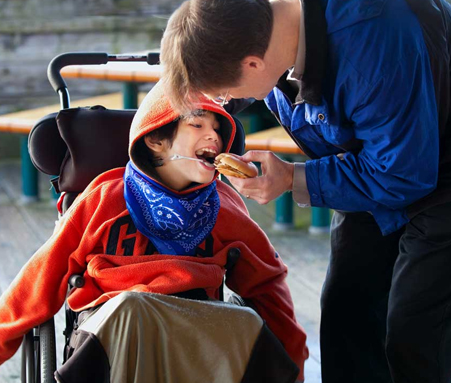
Prader-Willi Syndrome (PWS) is a rare genetic condition that results in a combination of intellectual disabilities, behavioral challenges, and complex physical health issues. It is caused by the absence of specific genes on the 15th chromosome, and its symptoms can severely affect an individual’s quality of life. From difficulties in feeding and growth to cognitive delays and behavioral issues, people with PWS require specialized care and tailored support throughout their lives. The National Disability Insurance Scheme (NDIS) plays a crucial role in providing individuals with Prader-Willi Syndrome (PWS) and their families with the resources and services they need to manage these challenges effectively.
This article explores the pivotal role of the NDIS in supporting those with PWS, detailing the eligibility process, types of available support, and how the scheme empowers individuals and their families to enhance their quality of life.
Prader-Willi Syndrome (PWS) is a genetic disorder caused by a deletion or unresponsiveness of genes on the 15th chromosome inherited from the father. It affects nearly every system in the body, resulting in a unique set of challenges, including:
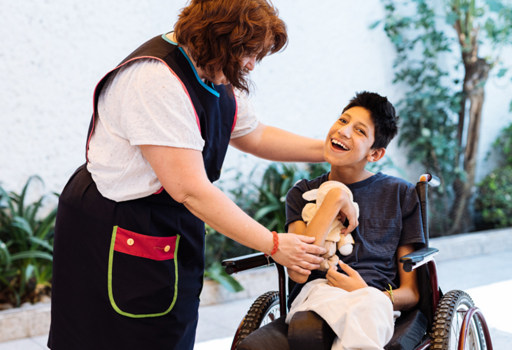
People with PWS typically experience mild to moderate intellectual disabilities, with some displaying difficulty in learning and processing information.
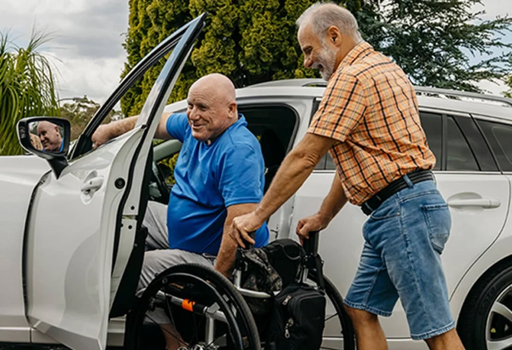
Common behavioral characteristics of PWS include temper tantrums, obsessive-compulsive behaviors, and anxiety.
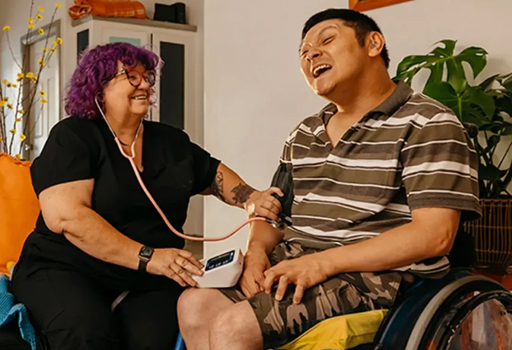
Individuals with PWS may have poor muscle tone (hypotonia) during infancy, leading to feeding difficulties. This is followed by an insatiable appetite due to an inability to recognize fullness, leading to potential obesity if not managed effectively.

Many individuals with PWS have a reduced function of the hypothalamus and pituitary gland, which leads to growth hormone deficiencies and other hormonal imbalances.

Prader-Willi Syndrome also increases the risk of developing other health conditions, such as sleep apnea, diabetes, and heart disease.
Despite these challenges, with appropriate early interventions and continuous support, individuals with PWS can lead fulfilling lives. This is where the NDIS can be instrumental in ensuring people with PWS receive the assistance they need.
Contact Immediate Care
The National Disability Insurance Scheme (NDIS) is a government initiative that provides personalized support to Australians living with permanent and significant disabilities. Its primary goal is to help individuals lead more independent, inclusive, and fulfilling lives by offering funding for a range of services and supports tailored to their specific needs.
The NDIS provides a wide range of tailored support for people with
Prader-Willi Syndrome, which
can be grouped into several key categories
Core Supports cover day-to-day needs, helping individuals with PWS to engage in daily activities and improve their quality of life.
Assistance with Daily Living: This includes support with tasks such as personal care, dressing, meal preparation, and hygiene. For individuals with PWS, assistance may also be needed with behavioral management and safety protocols.
Consumables: Funding for necessary items such as continence aids, assistive devices, and other personal supplies to support independence and comfort.
Transportation: Travel assistance for medical appointments, therapy sessions, social engagement, or employment-related travel.
Capacity Building Supports focus on enhancing the skills and abilities of individuals to help them reach their full potential.
Therapeutic Supports: People with PWS may require specialized therapies, including speech therapy, occupational therapy, and behavioral therapy, to manage communication challenges, sensory issues, and behavioral symptoms.
Skill Development: Programs designed to improve life skills, such as cooking, budgeting, and social interaction, help individuals with PWS increase independence and engage meaningfully in the community.
Education Support: Tailored services and interventions to support individuals in educational settings, helping them transition into school and benefit from specialized accommodations.
Capital Supports are aimed at providing long-term solutions that promote accessibility and independence.
Assistive Technology: This includes funding for communication devices, mobility aids, and other tools that assist with daily activities and ensure greater independence for individuals with PWS.
Home Modifications: For some individuals with PWS, home modifications, such as safety rails, ramps, or specialized furniture, may be necessary to ensure that the living environment is safe and accessible.
An effective NDIS plan for individuals with Prader-Willi Syndrome requires a collaborative and
personalized approach.
The process begins with a thorough assessment of the participant’s
needs, strengths, and challenges.

The NDIS planner or Local Area Coordinator (LAC) conducts a detailed evaluation of the individual’s needs, with input from healthcare providers, family members, and educators.
Goals are tailored to the individual’s aspirations, whether that’s gaining independence, developing social skills, or pursuing education and employment opportunities.
Based on the assessment and goals, an individualized plan is developed that outlines the funding and services required to meet those needs.
The NDIS plan is reviewed regularly to ensure that it continues to meet the individual’s changing needs as they grow and develop.
While the NDIS offers a broad range of services, families and individuals with Prader-Willi
Syndrome may face some challenges in accessing support, including

The application process for the NDIS can be complex, and families may need support to ensure all necessary documentation is provided.
There may be delays in accessing services, especially in rural or remote areas, which could hinder timely intervention.
It may be challenging to find qualified service providers who specialize in PWS, particularly for specific therapeutic or behavioral needs.
Effective management of NDIS funds requires careful planning and oversight to ensure that the allocated resources are utilized appropriately.
Advocacy groups and experienced plan managers can help families navigate these challenges, ensuring they maximize the benefits available through the NDIS.
The NDIS has significantly improved the lives of individuals with Prader-Willi Syndrome and
their families. Success stories highlight how tailored interventions have helped participants
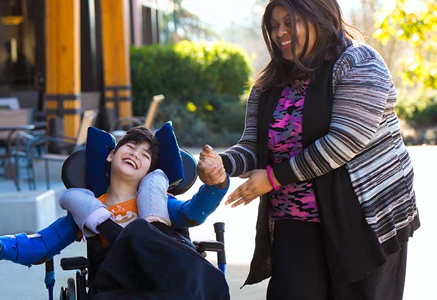
Improve social and communication skills through targeted therapy, enhancing their ability to engage with peers.
Gain independence in daily activities and life skills through skill development programs and assistive technology.
Participate in meaningful community and recreational activities, contributing to a sense of belonging and well-being.
Several organizations provide vital support for families managing Prader-Willi
Syndrome and navigating the NDIS process

Provides resources, advocacy services, and support for individuals with PWS and their families.
Offers a comprehensive guide to disabilities, including Prader-Willi Syndrome, with resources for families on managing the condition.
Provide specific services for individuals with PWS, including NDIS-related support and guides for families.
Agencies such as Beacon Support and others offer specialized programs tailored to the needs of individuals with Prader-Willi Syndrome.
The NDIS plays an essential role in supporting individuals with Prader-Willi Syndrome, ensuring they receive the necessary resources and assistance to enhance their independence, well-being, and quality of life. By offering personalized care plans, access to therapeutic supports, and a wide range of services, the NDIS is empowering people with PWS and their families to overcome challenges and thrive in their communities. With continued advocacy and collaboration, the NDIS will remain a vital resource for individuals living with Prader-Willi Syndrome, enabling them to lead fulfilling lives.

Immediate Care is here to empower individuals and their families, providing the support they need to live fulfilling lives. Our team’s dedication and expertise make us a leader in the field of disability services.
For more information or to discuss how we can support you, contact Immediate Care today.
Woodstock, Victoria 3751